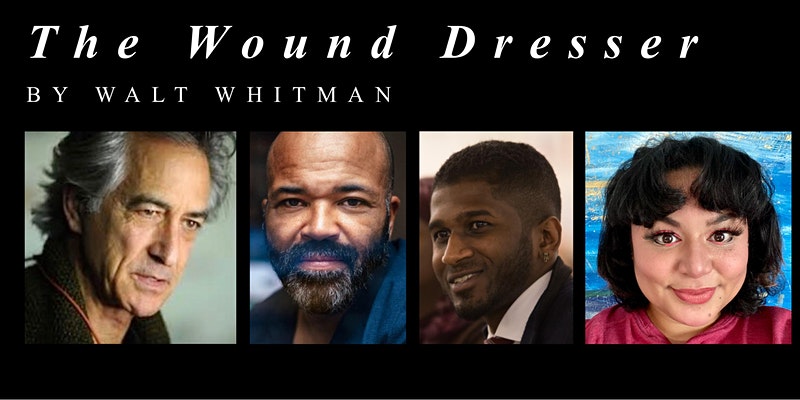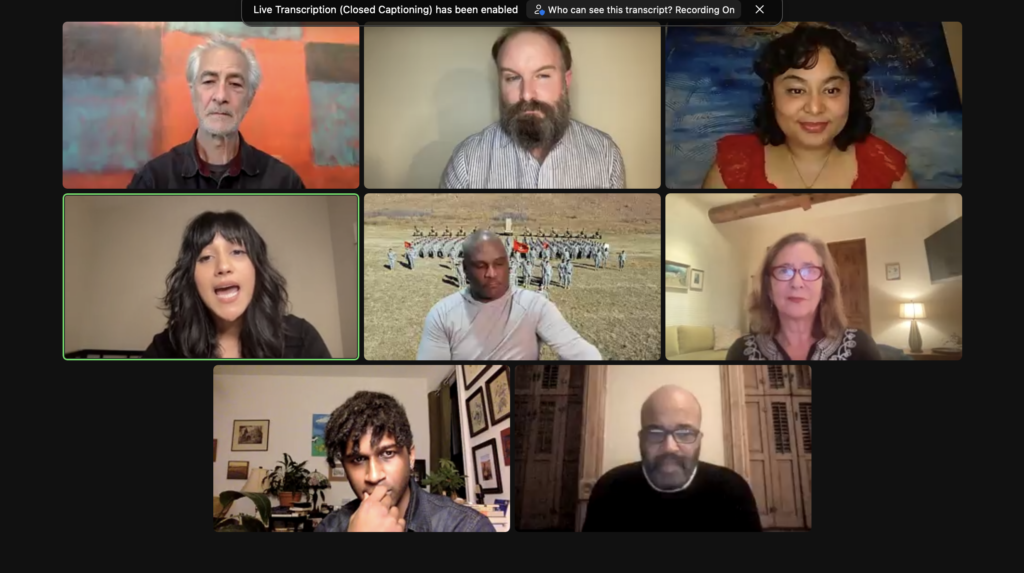The Wound-Dresser with Theater of War & Community Building Art Works

On February 10th, in collaboration with Theater of War and Community Building Art Works (CBAW), we hosted a virtual community discussion of Walt Whitman’s “The Wound-Dresser.” The event brought veterans, EMTs, nurses and other frontline medical providers, and their loved ones into a conversation to discuss the enduring relevance of Whitman’s experience, kneeling by the beds and operating tables of makeshift military hospitals during the Civil War.
Taking Whitman’s poem from our Season Three premiere as their source, a talented group of professional actors and U.S. veterans assembled to read the text and share their gut reactions: actors David Strathairn (Nomadland) and Jeffrey Wright (Westworld), U.S. Air Force veterans Craig Manbauman and Maj. (Ret.) Belena Stuart Marquez, and COL (Ret.) Gregory D. Gadson. Their comments kicked off a powerful evening of sharing and listening, which was introduced by Elisa New, and facilitated by Theater of War’s Bryan Doerries & CBAW’s Seema Reza.

The candor of Whitman’s poem proved to be a catalyst for the discussion, as many attendees were moved to share their experiences as wound-dressers and as patients in need of care. Diana Osborn, a paramedic in rural northern Vermont, responded to Whitman’s descriptions of “the matter and blood;” she said, “I’m sure Walt Whitman really saw those things, because you don’t make those things up.” Many veterans and medical workers shared that they felt seen by Whitman’s unflinching attention to traumatic details, from which they feel many civilians avert their gaze: as Eli Wright, a retired combat medic, put it: “To give Whitman credit, at least he was able to put it in poems.”
